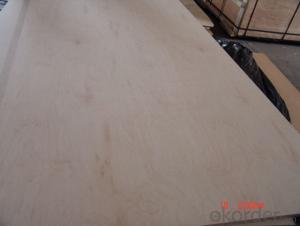Plywood has been a go-to material for many DIY enthusiasts, builders, and designers alike. It’s versatile, durable, and comes in a variety of types to suit different projects. But one question that often pops up is about the cost. Plywood prices can vary widely depending on several factors, and that’s what we’re diving into today. We’re going to explore the different types of plywood, their uses, and most importantly, how to get the best value for your money.
The Many Faces of Plywood
Plywood is like a chameleon; it adapts to many environments and applications. It’s made from thin layers of wood veneer that are glued together, with the direction of the grain alternating in each layer. This gives plywood its strength and resistance to warping. Let’s take a look at the main types of plywood you might come across:
– Baltic Birch Plywood: Known for its high-quality birch layers and smooth surface, Baltic Birch is a favorite for furniture making and other projects that require a fine finish.
– Marine Plywood: As the name suggests, Marine Plywood is designed to withstand moisture, making it perfect for boat building and outdoor projects.
– Okoume Plywood: Originating from Africa, Okoume is lightweight and has a unique grain pattern, often used for decorative purposes.
– Birch Plywood: Not to be confused with Baltic Birch, regular Birch Plywood is still a solid choice for general construction and furniture.
– Particle Board: While not technically plywood, Particle Board is made from wood chips and is a more budget-friendly option, though it lacks the strength and durability of true plywood.
The Price Factors
When it comes to plywood prices, several factors influence the cost:
– Grade: The grade of the plywood refers to the quality of the wood veneer. Higher grades have fewer defects and are more expensive.
– Core Type: The core can be made from different materials, affecting the price. For instance, a hardwood core is more expensive than a softwood core.
– Thickness: Thicker plywood is generally more expensive due to the increased material.
– Size: The larger the sheet size, the higher the cost.
– Species of Wood: Some wood species are more expensive than others due to their scarcity or the quality they provide.
Where to Buy Plywood
Knowing where to buy plywood can also affect the price you pay. Here are a few places to consider:
– Local Hardware Stores: These are convenient but may have limited options and higher prices.
– Lumber Yards: They often have a wider variety and better prices, but you might need to buy in bulk.
– Online Retailers: Shopping online can save you money, but be aware of shipping costs and delivery times.
– Wholesale Suppliers: If you’re buying in large quantities, wholesalers can offer significant discounts.
How to Save on Plywood Costs
Now, let’s talk about some tips to help you save on plywood costs without sacrificing quality:
– Buy in Bulk: If you’re working on a large project, buying in bulk can save you money.
– Look for Sales: Keep an eye out for sales at your local stores or online.
– Consider Off-Cut Options: Sometimes, buying off-cuts from lumber yards can be a cost-effective way to get the plywood you need.
– Choose the Right Grade: Not every project requires the highest grade of plywood. Consider the requirements of your project and choose accordingly.
– Repurpose and Recycle: If you have leftover plywood from previous projects, consider repurposing or recycling it to save costs.
The Emotional Side of Plywood
Plywood isn’t just a material; it’s a canvas for creativity. It’s the foundation of many dreams brought to life. From the first piece of plywood you ever bought to the last project you completed, there’s an emotional connection. It’s about more than just the cost; it’s about the memories and the satisfaction of a job well done.
The Future of Plywood Prices
The cost of plywood can fluctuate due to various market conditions. Factors like supply and demand, wood scarcity, and even global events can impact prices. It’s essential to stay informed and be flexible in your approach to sourcing plywood.
Wrapping Up
Plywood prices may seem daunting at first, but with a bit of research and some smart shopping, you can find cost-effective options that suit your needs. Remember, the key is to understand the different types, consider the factors that influence price, and explore all your purchasing options. And most importantly, enjoy the journey of creating with plywood, as it’s not just about the material, but the masterpieces you craft with it.

